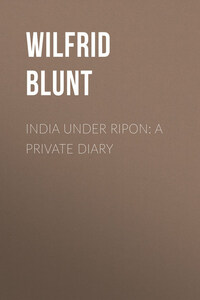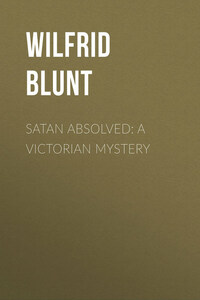I ought perhaps to have named this volume “The Awakening of India,” because it describes the condition of Indian things at the time of Lord Ripon’s viceroyalty, which was in truth the awakening hour of the new movement towards liberty in India, the dawn of that day of unrest which is the necessary prelude to full self-assertion in every subject land.
The journey it records was made under circumstances of exceptional interest at an exceptional moment, and should be instructive in view of what has happened since. It contains a foreshadowing of events which are under our eyes to-day, and suggests a solution of problems which, after long waiting and with a timid courage, is gradually being accepted as official.
The political situation in Lord Ripon’s time was as follows: Mr. Gladstone, when he came into office in 1880, found himself at the head of an immense majority in the House of Commons, pledged to ideas of liberty in the East of which he had himself been the foremost preacher. With regard to India he had formulated the Liberal creed in a single sentence: “Our title to be in India,” he had said, “depends on a first condition, that our being there is profitable to the Indian nations; and on a second condition, that we can make them see and understand it to be profitable.” His predecessor’s policy had proved a failure. It had been one of imperial expansion, of reckless finance, and of administrative coercion. It had resulted in a disastrous frontier war, in an immense financial deficit, and in the exasperation of the educated native community. There had been a terrible famine, the severest perhaps of the century. Many millions of the agricultural peasantry had died or were reduced to a condition of semi-starvation. Famine, to use the words of a popular Anglo-Indian writer of the time, had become “the horizon of the Indian villager; insufficient food the foreground.” The forest laws, the salt tax, the ever increasing pressure of the revenue officers had driven some districts to the verge of revolt. The vernacular press, which would have denounced the Government as the cause of these evils, had been gagged in the towns; and disaffection, stifled in its expression but none the less real, was rife almost everywhere. The unrest was becoming, it was thought, dangerous. It was to remedy these evils, and to put the government of India on a footing of sounder economy, less war, and a closer confidence between rulers and ruled, that Lord Ripon was sent to India in the summer of 1880.
The choice of Lord Ripon as Queen Victoria’s representative and Viceroy was, I believe, to a large degree Her Majesty’s own. Little as she was in sympathy with Mr. Gladstone, she had this in common with the new programme, that the disaffection of her Indian subjects distressed her, and hardly less the arrogance with which they were treated by their fellow subjects of British origin. In the proclamation issued to the people of India after the Mutiny, her royal name had been appended to a promise of entire equality as between these and the others; and it touched her dignity that her promise should have remained so long unredeemed. She had, besides, a personal regard for Lord Ripon on account of his great integrity, and he seemed to her the man most reliable she could send to deliver a new message in her name to the people.
Lord Ripon landed in India in the late summer of the year of Mr. Gladstone’s victory. He bore with him words of peace and hope which raised native imagination to a point of high expectancy. Mr. Gladstone’s name, to those who understood English politics, seemed a guarantee of all reforms; his opinion about India had been proclaimed from the house-tops; and the Queen’s personal interest in the matter of her proclamation was known, and gave additional assurance to the popular desire. Nor was Lord Ripon’s individual attitude a disappointment to those who came in contact with him. Though possessed of no great personal gifts or graces, he was a transparently honest man, and it was felt that, as far as it lay with the Viceroy to affect the situation, he could be relied on as a friend to native India. He was seen from the first to be a serious man, but without the chill reserve which is so great a barrier between Englishmen and Orientals, and his manner had something paternal in it which inspired a full measure of native confidence. It was an advantage to him, I think, that he was not a member of the English Church, but a Roman Catholic of more than ordinary piety. Such was the impression made by Lord Ripon at the opening of his Indian career. It was noticed of him as a wonderful thing that, on landing at Bombay, his first visit was to the Roman Catholic Cathedral, and a little later that in the streets of Calcutta he would return the salutes of his native acquaintance, contrary to all viceregal custom, and to the point that it became the subject of private expostulation with him on the part of his official entourage










